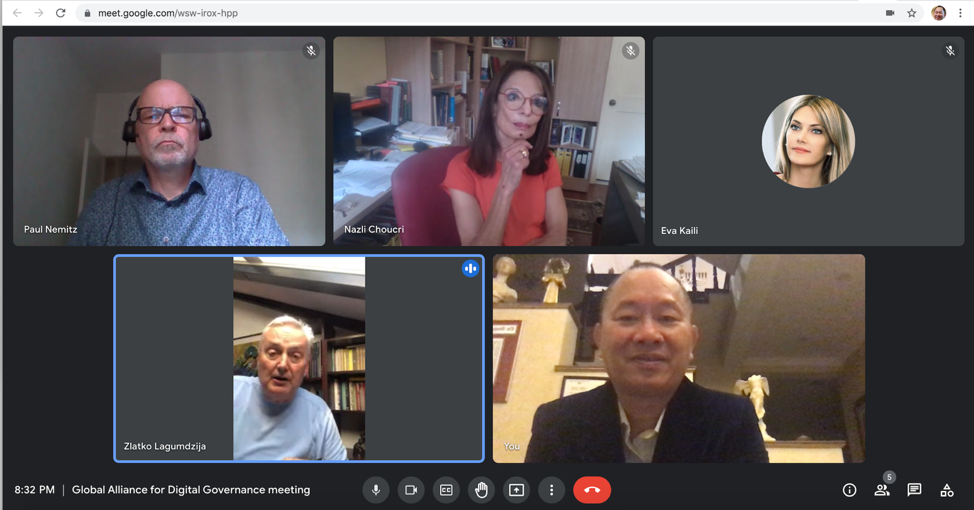
by Editor | Aug 1, 2021 | News
On July 30, 2021, key coordinators of Global Alliance for Digital Governance (GADG) met to define core works and plans of GADG 2021 – 2022. Professor Nazli Choucri (MIT), MEP Eva Kaili, Zlatko Lagumdzija (former PM of Bosnia and Herzegovina), Paul Nemitz (Principal Advisor of European Commission), and Nguyen Anh Tuan (CEO of Boston Global Forum) discussed and contributed significant works and preparation for the Policy Lab “Fundamental Rights in AI & Digital Societies: Towards an International Accord”, co-organized by Boston Global Forum and Club de Madrid for September 7-9.
One of the most important decisions in the GADG Coordinator meeting was to build a system which monitor governments and companies. This Monitor System can view violations of ethical values and standards of the Social Contract for the AI Age and AI International Accord by governments and large organizations. The platform will alert against the misuse of Artificial Intelligence (AI), personal data, and negligence of cybersecurity. Its name is the GADG Monitor, and it will be introduced at the BGF-Club de Madrid Policy Lab on September 7-9.
Club de Madrid and Boston Global Forum will collaborate in building and developing the Global Alliance for Digital Governance.
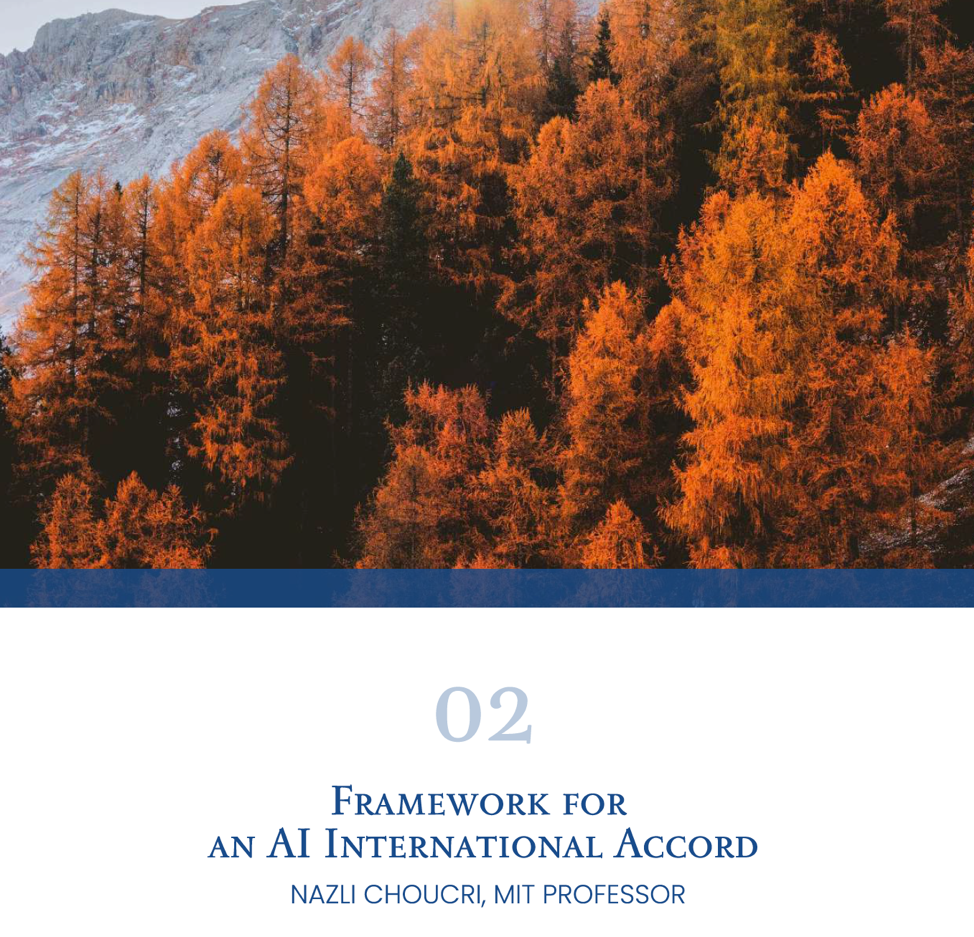
by Editor | Jul 26, 2021 | News
Members of AI International Accord Team are discussing its standards and challenges in its implementation.
The standards are based off the Social Contract for the AI Age, the foundation for a peaceful, secure, and prosperous world in the AI Age. Only with these standards could the AI International Accord will solve problems of AI and Digital Age.
However, there are challenges to the implementation of these standards, most notably non-democratic countries such as China. If the democratic world does not unite and act in solidarity to protect the norm, it will face great danger of totalitarianism. To contribute to that solidarity, the Global Alliance for Digital Governance is the beginning of the important effort and mission.
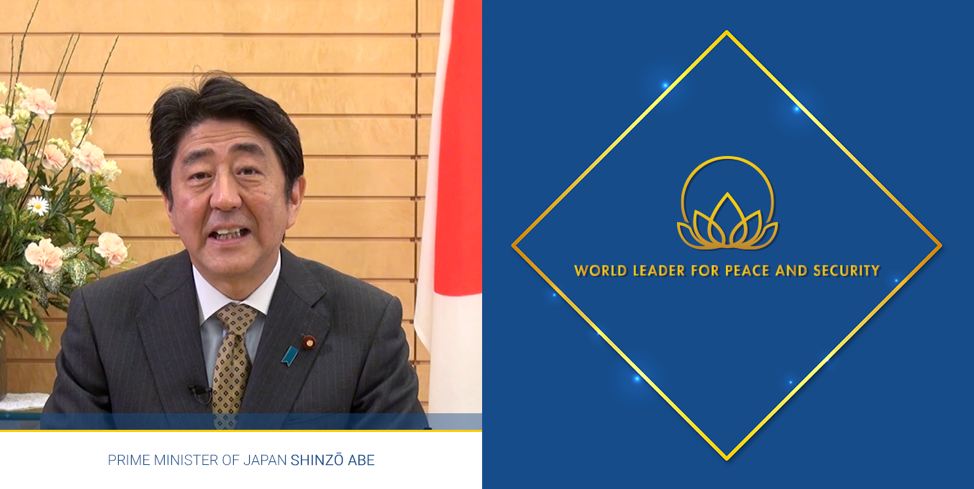
by Editor | Jul 19, 2021 | News
Remaking the World – Toward an Age of Global Enlightenment was officially released on Boston Global Forum and the United Nations Centennial Initiative. We are grateful to World Leader Award recipients that contributed:
Ursula von der Leyen, President of the European Commission, 2020 World Leader for Peace and Security Award, An AI Ecosystem of Trust
Vaira Vīķe-Freiberga, 6th President of Latvia (1999-2007), President of World Leadership Alliance – Club de Madrid (WLA-CdM) 2013-2019, 2019 World Leader for Peace and Security Award, AI in the next century of the United Nations
Ban Ki-Moon, Secretary-General of the United Nations (1/1/2007 – 31/12/2016), Lead the UNESCO Global Education First Initiative, 2016 World Leader for Peace and Security Award, Building Partnerships
Shinzō Abe, Prime Minister of Japan (9/2006-9/2007, 12/2012-9/2020), 2015 World Leader for Peace and Security Award.
Vint Cerf, “Father of the Internet”, Vice President and Chief Internet Evangelist for Google, Co-author of Social Contract for the AI Age, 2019 World Leader in AI Society Award, A People-Centered Economy
Judea Pearl, Professor of Computer Science and Director of the Cognitive Systems Lab at the University of California, Los Angeles, recipient of the A.M. Turing Award, 2020 World Leader in AI World Society Award. Radical Empiricism and Machine Learning Research and The Domestication of Causal Reasoning
Stavros Lambrinidis, Ambassador of the European Union to the United States, 2021 World Leader in AI World Society Award, An AI “Bill of Rights” in the Digital Age
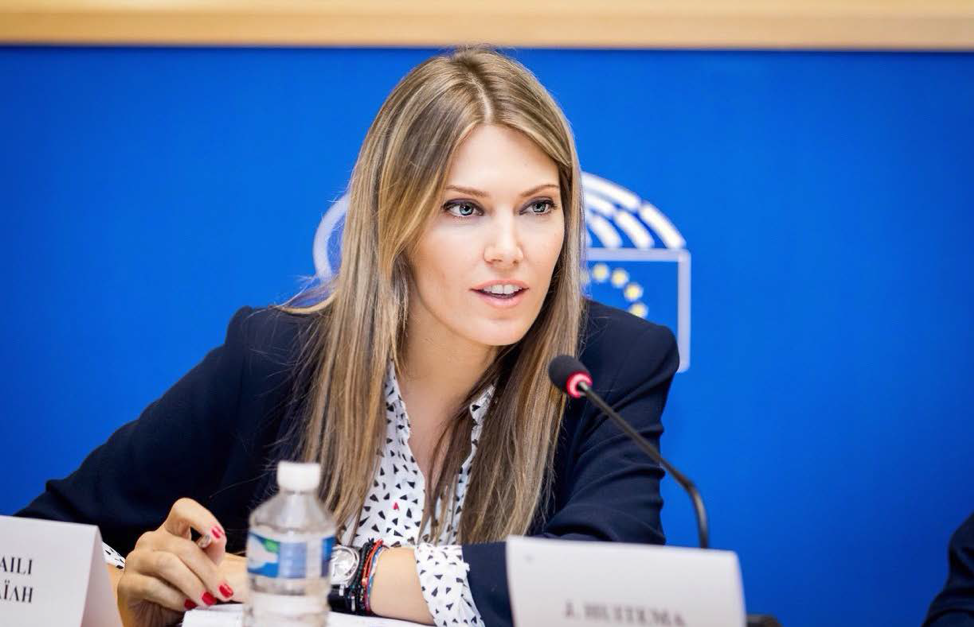
by Editor | Jul 19, 2021 | News
On July 15, 2021, BGF and AIWS established the Global Alliance for Digital Governance (GADG). GADG will:
- Coordinate of resources: governments, international organizations, corporations, think tanks, civil society, and influencers for AI and a digital sphere for good, to make these resources more effective, to synthesize and maximize their impact, and to create more implementation-oriented conferences.
- Protect fundamental values and standards proposed in Social Contract for the AI Age, in AI International Accord and in the book Remaking the World – Toward an Age of Global Enlightenment.
Planned projects in 2021 – 2022:
Using AIWS Innovation Platform to:
- Create lists of governments, organizations, companies, leaders, and thinkers that follow GADG’s mission.
- Collect information:
- Goals, purposes
- Research, pieces, initiatives, plans, events, and conferences
- Human resources and financial capital.
- Impacts and influences of individuals
- Their difficulties and challenges
- Contact information of leaders
In 2021 – 2022, focus on:
- Governments: USA, Japan, EU, Finland, Sweden, Australia, UK, Canada, Germany, France.
- International organizations: UN, OECD, UNESCO, Club de Madrid, IPAC, GPAI, Atlantic Council, and World Economic Forum.
- Significant conferences: Munich Conference and Riga Conference.
- Businesses: Google, the Patrick McGovern Foundation etc.
Influencers, Coordinators of GADG will connect these resources for the mission, as well as suggesting ideas and actions to engage organizations, leaders, and governments to optimize resources to create a more powerful impact.
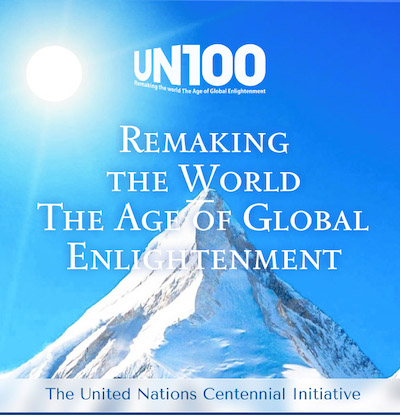
by megan | Jul 15, 2021 | AIWS and the Age of Global Enlightenment, Publications

Remaking the World – The Age of Global Enlightenment is a joint initiative by the Boston Global Forum and the United Nations Academic Impact as part of the United Nations Centennial Initiative.
The book proposes pathways toward a more humane, peaceful, and secure world, largely by harnessing the potential of Artificial Intelligence (AI), blockchain, and other Digital Age technologies. A key proposal is the adoption of an AI International Accord that would bind nations to constructive uses of AI and prohibit destructive uses. In addition, Remaking the World – The Age of Global Enlightment advances the Social Contract for the AI Age as the theoretical and ethical foundation of the Accord. The book also proposes the AI World Society (AIWS) as a vehicle through which individuals and civic organizations can help foster an Age of Global Enlightenment.
Distinguished contributors to the book include:
- Shinzo Abe, Prime Minister of Japan
- Ash Carter, Former US Secretary of Defense
- Vint Cerf, “Father of the Internet”, Google
- Nazli Choucri, Massachusetts Institute of Technology (MIT)
- Ramu Damodaran, Chief of United Nations Academic Impact
- Michael Dukakis, Former Governor of Massachusetts, Chair, Boston Global Forum
- Eva Kaili, Member of the European Parliament
- Robin Kelly, U.S. Representative (Illinois),
- Ban Ki-moon, the United Nations Secretary-General
- Didzis Kļaviņš, University of Latvia
- Taro Kono, Defense Minister, Japan
- Zlatko Lagumdzija, Former Prime Minister, Bosnia & Herzegovina
- Stavros Lambrinidis, EU Ambassador to the United States
- Ursula von der Leyen, President of European Commission
- Yasuhide Nakayama, Defense State Minister, Japan
- Paul Nemitz, Principal Advisor, European Commission
- Nguyen Anh Tuan, CEO, Boston Global Forum
- Andreas Norlén, Speaker, Swedish Parliament
- Joseph Nye, Harvard University
- Zaneta Ozolina, University of Latvia, Co-Chair of Riga Conference
- Thomas Patterson, Harvard University
- Judea Pearl, University of California, Los Angeles (UCLA)
- Alex “Sandy” Pentland, Massachusetts Institute of Technology (MIT)
- Sir Iain Duncan Smith, MP, UK Parliament
- Vaira Vike-Freiberga, President of World Leadership Alliance-Club de Madrid, Former President of Latvia
Download a copy of Remaking the World – The Age of Global Enlightment here:

by Editor | Jul 11, 2021 | News
In the book Remaking the World – Toward an Age of Global Enlightenment, a Global Enlightenment Program is a part of the AIWS Ecosystem, the Global Alliance for Digital Governance (GADG), and fundamental to AIWS City. Content of this program is proposed:
- Rights and responsibilities of a global citizen – the Social Contract for the AI Age
- AIWS Value System
- Resources and assets of a citizen:
- Knowledge, innovations, creativity
- Basics of history
- World culture
- Nature beauty
- The Arts
- Moral, ethics, honesty, tolerance
- Friends, communities, networks
- Tools, apps, platforms:
- Apps and tools for life and work
- AIWS Innovation Exchange Platform
- Set up a path for life
- Lifelong learning, problem-solving, innovation, and creativity
We call on educators and innovators to contribute their ideas for the AIWS Global Enlightenment Program.
If you have any ideas, suggestions, please send email to [email protected]
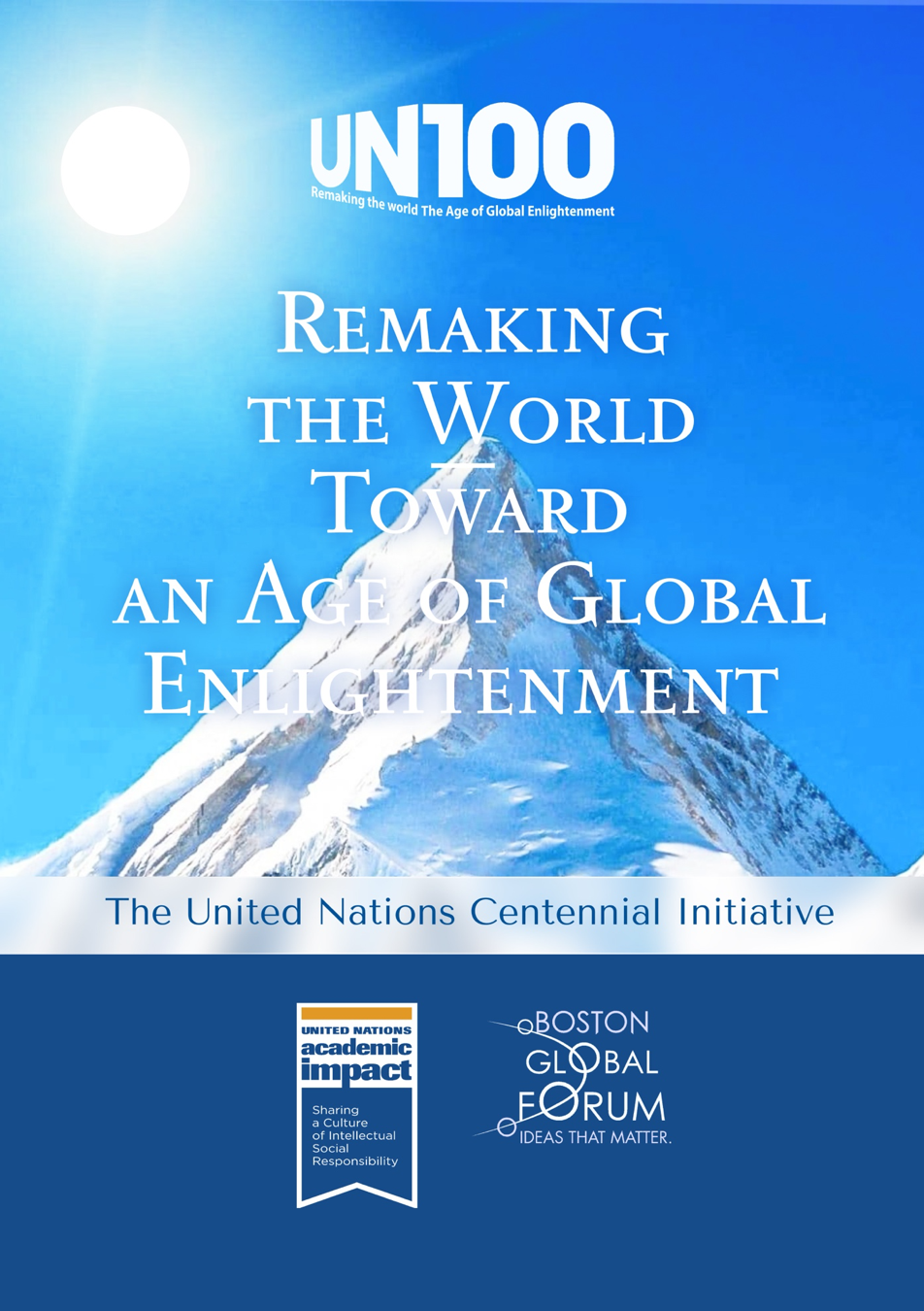
by Editor | Jul 11, 2021 | News
Leaders and governments have perceptions about threats from totalitarian governments abusing technology, AI, and the digital sphere. There are awareness and debates already, now it is time for actions.
Fundamental for a peaceful, secure, prosperous world: governments, corporations, organizations, and people need to respect and apply values and standards proposed in Social Contract for the AI Age, in AI International Accord and in the book Remaking the World – Toward an Age of Global Enlightenment.
The world lacks a coordinator of resources: governments, international organizations, corporations, think tanks, civil society, influencers for these purposes and goals.
BGF and AIWS propose an initiative to meet this need: establishing Global Alliance for Digital Governance (GADG). This is a part of Social Contract for the AI Age, AI International Accord and BGF Conference of July 1st, 2020.
GADG is not an organization – it is a network for sharing and cooperating between resources, coordinated by BGF and AIWS.
Governor Michael Dukakis, co-founder and Chair of The Boston Global Forum (BGF), and Mr. Nguyen Anh Tuan, CEO of BGF and GADG team, will connect and coordinate with resources for this mission and goal.
GADG call on governments, organizations, corporations, influencers, educators, innovators, creators, and all to join GADG for this cause.
Meaningful contributions will be recognized by AIWS Rewards.
We will introduce more details of Global Alliance for Digital Governance in the Weekly next weeks.
Contact: [email protected]
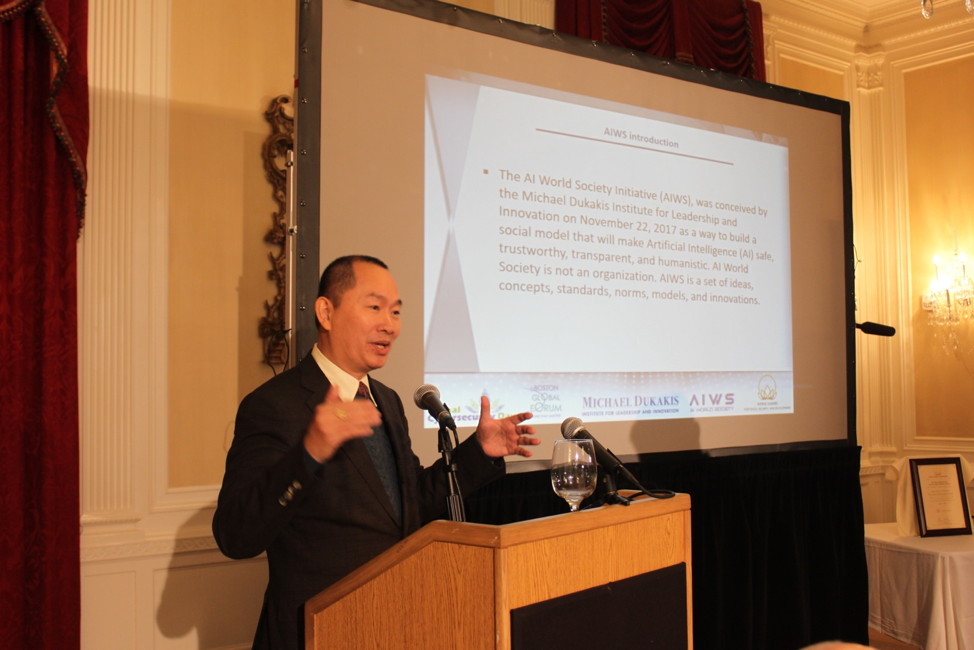
by Editor | Jul 5, 2021 | News
AIWS seeks to create an AIWS Ecosystem that empowers citizens to create value for themselves, for others, and for society through the application of artificial intelligence, digital, blockchain, and data science technologies. It is a sharing ecosystem that rewards both the creators and users of these technologies, as well as an ecosystem that encourages everyone to innovate. It breaks down the hierarchies that traditionally have created unequal power relationships, paving the way to a sharing society. It recognizes the value of every citizen, as well as every citizen’s creative potential. It seeks to promote citizens’ economic wellbeing while also promoting ethical and community values. It aims for nothing less than the creation of a more trusting, prosperous, and compassionate world where people can live more fulfilling lives, materially and ethically.
The foundation of AIWS is the Social Contract for the Artificial Intelligence Age, which was developed by the Boston Global Forum in consultation with leading thinkers and practitioners. The Social Contract has been endorsed by organizations, including The World Leadership Alliance – Club de Madrid, which is the organization of former heads of state and heads of government of democratic countries.
As with earlier social contracts, the Social Contract for the Artificial Intelligence Age is rooted in the rights and interests of individuals, and what governments and other entities must do and are prohibited from doing to safeguard these rights and interests. The AI Social Contract and AIWS Ecosystem envision a world where everyone’s contribution is recognized and everyone has a right to education and ready access to information and technology, where no one is above the law, and where integrity, knowledge, creativity, and honesty are seen as key values in shaping policy and society. It envisions a world where governments adhere to basic values and are accountable and transparent.
The AIWS Value System
Remaking the world as a more humane, peaceful, and secure place rests on promoting the values that will foster that world. To that end, AIWS has created the AIWS Value System as a means of guiding and encouraging individuals to contribute to a changing world.
The AIWS Value System focuses on creative or innovative acts that foster a sharing society. Such acts can take many forms but would include:
– Creation or promotion of innovative ideas and organizations that offer meaningful paths for people’s political, social, economic, or moral development
– Creation or invention of technological advances that improve the lives of ordinary people
– Innovative approaches to art, culture, sport, or entertainment that improve the quality of life for ordinary people
– Voluntary acts – everything from charitable contributions to the granting of access to data – that enhance the lives of ordinary people
– Acts that promote the values inherent in the Social Contract for the Age of Artificial Intelligence
As these examples indicate, the AIWS Value System centers on action designed to help ordinary people and that contributes to the building of a sharing society.
Promoting the AIWS Value System
The AIWS Value System recognizes acts that often take place in the absence of supportive mechanisms. Yet, the creation of such mechanisms can incentivize and facilitate acts of this kind. To this end, AIWS is:
– creating the Global Enlightenment Education Program. This program will aim to inform ordinary citizens about the world in which they live, and how they can help improve it. The program will be dedicated to lifelong learning and the fostering of views that will enable ordinary citizens to be more innovative, tolerant, and participatory. The program will place special emphasis on reaching people in more remote areas who are typically left behind by technological change. The program will also emphasize the contribution that everyone, whatever their location or background, can make to the common good.
– promoting the development of legal systems that protect creativity and innovation and that respect the rights and interests of ordinary people.
– promoting creation of a cultural, social, economic, and political environment that encourages and rewards creativity and innovation; that respects the rights, interests, and abilities of ordinary people; that encourages popular participation in the creation of a more humane world; that rewards those individuals who make noteworthy creative and innovative contributions to the common good; and that recognizes those who, through ideas and action, make significant contributions to politics and society.
– promoting the development of technology systems that support creativity and innovation; that broaden participation by ordinary citizens; that contribute to the digital-age education of these citizens; that give ordinary citizens the means to directly create products and services; that foster meaningful work opportunities; that provide ordinary citizens with greater access to essential services, such as health care; and that suppress fraudulent and other harmful acts that injure ordinary citizens.
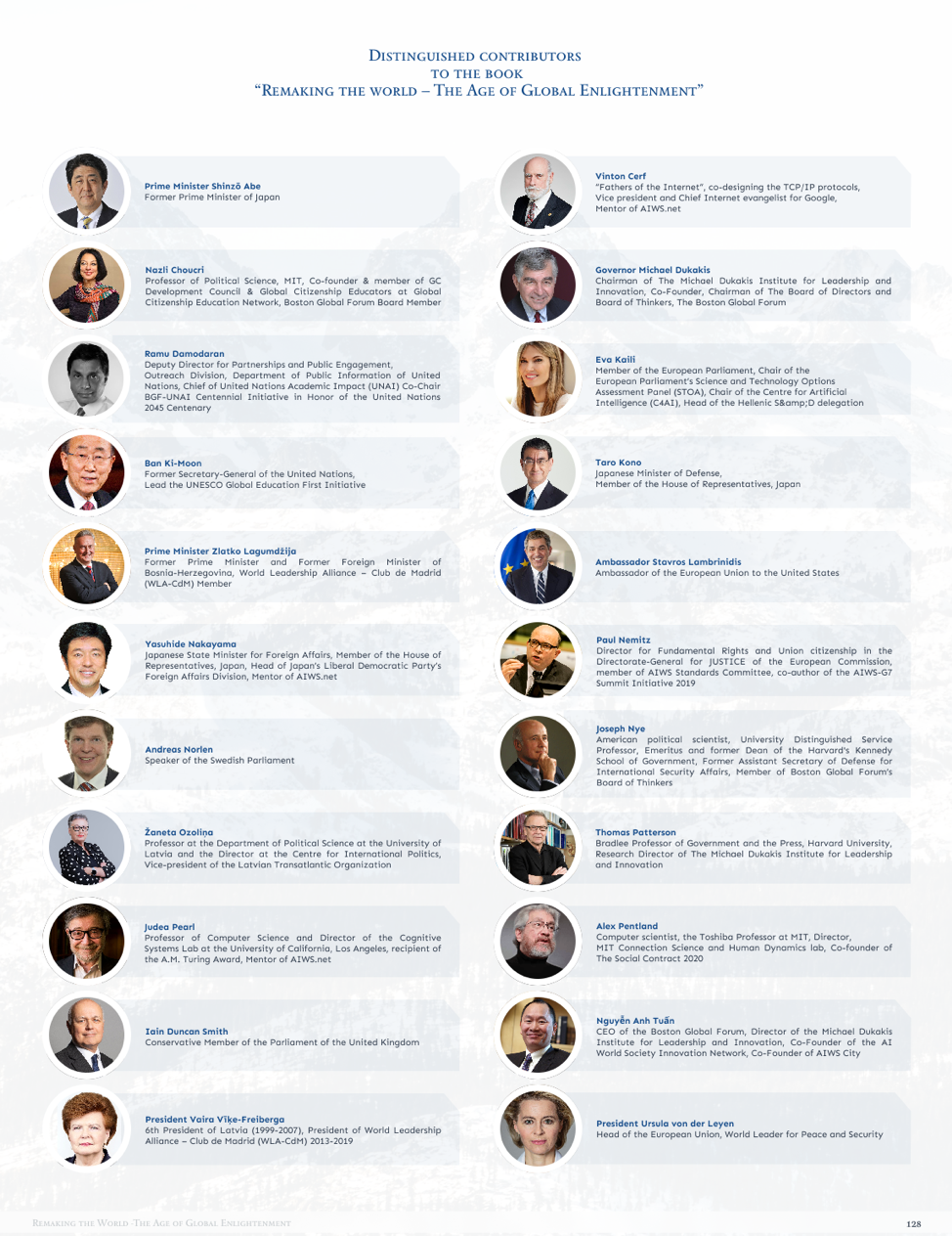
by Editor | Jul 5, 2021 | Event Updates
On July 1, 2021, Remaking the World – The Age of Global Enlightenment was officially made available. This book is a collaboration between the Boston Global Forum (BGF) and the United Nations Academic Impact (UNAI) as a part of the United Nations Centennial Initiative. The official announcement of the book was organized on May 27, 2021.
The book proposes pathways toward a more humane, peaceful, and secure world, largely by harnessing the potential of Artificial Intelligence (AI), blockchain, and other Digital Age technologies. A key proposal is the adoption of an AI International Accord that would bind nations to constructive uses of AI and prohibit destructive uses. The book proposes a Social Contract for the AI Age as the theoretical and ethical foundation of the Accord. The book also proposes the AI World Society (AIWS) as a vehicle through which individuals and civic organizations can help foster an Age of Global Enlightenment.
AIWS seeks to create an AIWS Ecosystem that empowers citizens to create value for themselves, for others, and for society through the application of artificial intelligence, digital, blockchain, and data science technologies. It is a sharing ecosystem that rewards both the creators and users of these technologies, as well as an ecosystem that encourages innovation. It breaks down the hierarchies that traditionally have created unequal power relationships, paving the way to a sharing society. It recognizes the value of every citizen, as well as every citizen’s creative potential.
Governor Michael Dukakis, Co-founder and Chair of Boston Global Forum, states that “the book is significant contribution of BGF and UNAI to shape peace, security, and prosperous world in the AI and Digital Age. Thank Editor Nguyen Anh Tuan for his excellent work for this book and the United Nations Centennial Initiative as well as AI World Society (AIWS).”
Ramu Damodaran, Chief of the United Nations Academic Impact and Co-Chair of the United Nations Centennial Initiative, said on the May 27, 2021, book launching event, “The United Nations Academic Impact is proud to join the Boston Global Forum in an initiative that looks to the 2045 centennial as an opportunity to reframe the possibilities inherent in the United Nations while remaining true to the power of its promise a century earlier.”
The book is free to download from July 15, 2021, at https://un100.net/books-un/
or at https://bostonglobalforum.org/bgf2022/publications/ai-world-society/
or send email to [email protected]









